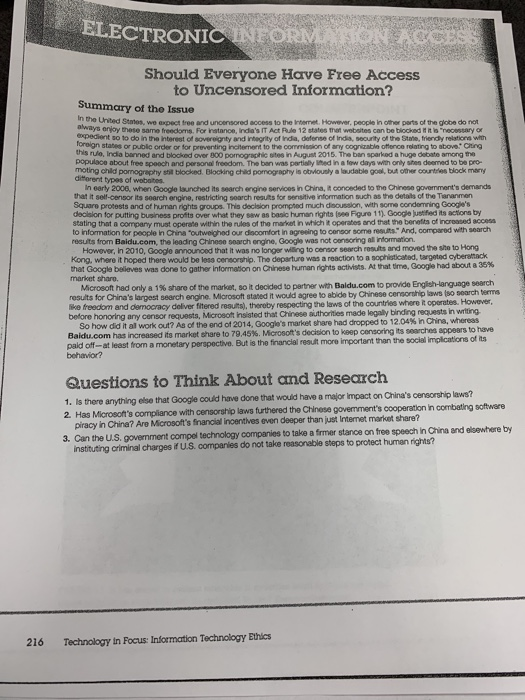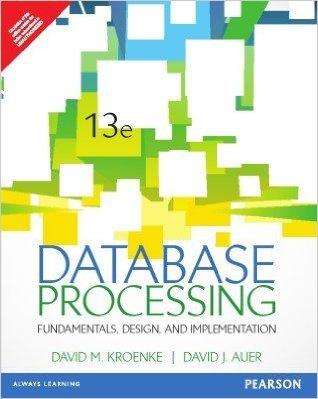ELECTRONIC NEO Should Everyone Have Free Access to Uncensored Information Summary of the Issue n the United States, we axpect free and uncensored access to the Intemet. However, people in other parts of the globe do not always enjoy these same freedoms. For nstance, inda's IT Act Rule 12 states thet websites can be blocked it it s "necessary or espedient so to do in the interest of sovereignty and integrity of Inda, defense of India, security of the Stane, friendy relationa with croign stabes or public order or for preventing incitement to the commission of any oognizable offence relating to above. Chting ns ruo, lnda banned and blockod over 800pornogractic stes r, August 2015. The ban sparked a huge debate among populace about free speoch and personal freedom. The ban was partialy lhed in a tew days with only sihes deemed to be pro- moting old pornography bloked Bloding chad pomognory is otwory a adable goal, ba cher oortres bock many dittorent types of webaites n early 2006, when Google launched its search engine services in China, it conceded to the Chinese govemment's demands Theat it sell-censor its search engine, restricting soarch results for sensitive information such as the details of the Taranmen Square protests and of human rights groups. This decision prompted much deoussion, with some condemning Google's decision for putting business profits over what they saw as basic human rights (see Figuro 11). Google justifed its actions by stating thot a compary must operate within the rules of the martket in which it operates and that the benetits of incroased accesa to nformation for people in China "outweighed our descomfort in agreeing to censor some resultsAnd, compared with search resuts from Baidu.com, the leading Chinese search engine, Google was not oonsoring all intormation. Howover, in 2010, Google announoed that it was no longer willing to censor search results and moved the she to Hong Kong, where it hoped there would be less censorship. The departure was a reaction to a thar Google believes was done to gather information on anese human rights activists. Atthat time, Googe had about as% sophisticated, targeted cyberatack market sharo. Microsoft had only a 1% share of the marke, so it decided toparter win Baidu.com to pro de Ergish langage sa ch results for China's largest seerch engine. Miarosoft stated it would agree to abide by Chinese censorthip laws (sc ke freedom and democracy deliver fitered resuns), thereby respectin before honoring any censor requests, Microsot insisted that Chinese authorities made legally binding requests in witting g the laws of the countries where it operates. However So how did it al work out? As ofthe end of 2014. Google's market share had dopped to 12.04% nCina, whereas Baidu.com has increased its market share to 79.45%. Moosoft's decision to keep conseng its sorches appears to pald off-at least from a monetary perspective. But is the financial result more important than the social implications of its have behavior? Questions to Think About and Research 1. Is there anything else that Google could have done that would have a major impact on China's censorship laws? 2. Has Microsot's compliance with censorship laws furthered the Chinese govemment's oooperation In combating softwere piracy in China? Are Microsoft's fnancial incentives even deeper than just Imtemet market share? 3. Can the U.S. govemment compei echnology companies to take a frmer stance on free speech in China and elsewhere by instituting r u.S. comparies do not take reasonable steps to protect human rights? criminal charges 216 Technology in Focus Information Technology Bthics







